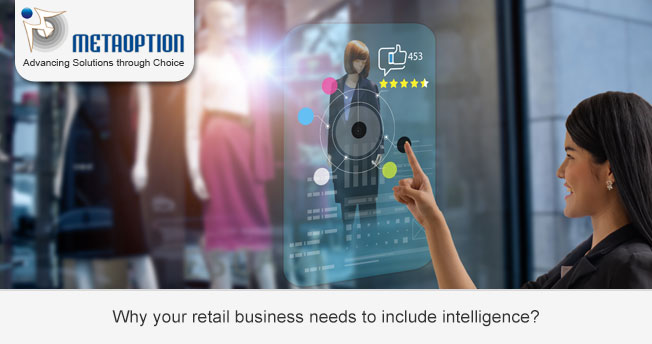Artificial intelligence (AI) is a continually advancing field that combines technologies such as machine learning (ML), natural language processing, and predictive analytics. These capabilities enable retailers to collect and collect large amounts of data for information that they can use to forecast market trends, predict customer demand, and make data-driven decisions. That makes retail businesses include business intelligence to remain competitive in the market. LS Central, a retail management solution built on Dynamics 365 Business Central helps you to remain competitive with the functionality of providing intelligence to your retail business. It’s a complete unified commerce platform to manage your entire retail operations efficiently.

Ways how retailers can get benefit from Business Intelligence
Identify hidden tendencies
Retailers can learn about broad patterns and consumer habits by performing simple analyses like identifying the product category that generated the most revenue in a given month or determining the effect of a promotion on revenue. What about the less obvious information that could help you outperform your competitors?
AI can help in this situation. Through the use of natural language processing and machine learning (ML), AI can comb through reams of unstructured data, including social media, to spot trends before the general public even realizes they exist. These trends could be upcoming fashion trends, significant events, or new products entering the market. This information can be used by businesses to forecast demand for upcoming products, create fresh shopping concepts, and improve customer interactions.
Identifying the needs of customers
Did you know that roughly a third of returns in the fashion product categories are due to improper size, fit, or style? The good news is that businesses may take proactive measures to lower these kinds of returns, such as enhancing online sizing guidelines, offering more precise product descriptions, and utilizing technologies. Using AI, retailers can also fine-tune and customize product searches based on the tastes of specific customers.
Streamline and optimize tasks
It is not necessary to be an expert in marketing to understand that carefully chosen and targeted product labeling, descriptions, and tags increase the likelihood that products will be found on search engines like Google and Bing. However, it does take experience and time to create SEO-friendly, rich metadata for each of your products.
Product tagging and labeling enabled by AI may be useful. Retailers now employ computer vision algorithms to recognize and tag important product qualities automatically. To make sure your customers get exactly what they’re looking for, these algorithms can also be utilized to develop titles that are optimized for search engines and precise product descriptions.
Conclusion
With the amount of data that retailers gather increasing daily, intelligent technologies are becoming more and more essential to making profitable business decisions. The good news is that these tools are becoming more user-friendly and less expensive. Please contact us at MetaOption if you’re interested in learning more about how LS Central can help you work smarter.


